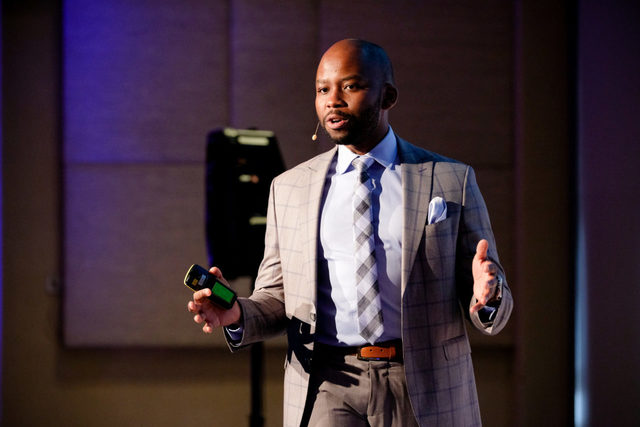The Fourth Industrial Revolution is upon us. Finance Indaba speakers explained how to be prepared.
“Ensure that workers have the skills they need to transition to different jobs.”
Rayner Canning, business development director at The University of Cape Town Graduate School of Business (UCT-GSB), believes that the jobs we do, and the skills we need to perform them, will change, and rapidly so. He says:
“The challenge going forward is to ensure that workers have the skills they need to transition to different jobs. The fourth industrial revolution poses a risk to job security only in the sense that not managing this transition can lead to greater unemployment and social inequality. In approaching what lies ahead, organisations need to invest in developing the essential capabilities of their people. Business schools obviously play a key role here.”
Read more:
Future-fit businesses, leaders and workforces
“Entrepreneurs, start businesses that will buy you back time.”
Standard Bank’s Lebohang Monama emphasised that it’s imperative that entrepreneurs start businesses that can buy them back time so that they can make money and still be able to spend time with their families and friends.
“Build businesses that can continue without you being there all the time."
Lebohang told attendees they will constantly have to re-invent themselves to survive in the future, citing research that shows that everyone who is under 35 right now will change their jobs three or four times in future as a result of the Fourth Industrial Revolution.
Read more:
Businesses that are not technologically advanced risk becoming irrelevant
“Decentralise to survive.”
Mqondisi Gumede (pictured), knowledge merchant at the Iconoclast Knowledge Bureau, warned that if big business doesn’t decentralise it won’t survive the Fourth Industrial Revolution.
“Business has to loosen its tight grip on power and allow more people to make decisions if it wants to thrive during the Fourth Industrial Revolution because ‘the revolution will not be centralised’.”
Mqondisi said in future things will be more decentralised, which means business must follow suit.
But the only way for executives to relieve themselves of always having to make decisions for the future is to give people space to allow them to associate with your business and make up their own rules.
Mqondisi concluded:
“There’s only strength in a decentralised democratic world and going from me to we, exclusion to inclusion will help us eradicate this unequal world.”
Read more:
Mqondisi Gumede: “Business must adopt more of a ground-up approach to survive in future
“What we are seeing now is cross-pollination and interplay.”
EY partner and lead for Robotic Process Automation at EY Africa James Matcher said that those of us in business today, and especially our leaders, who will feel the impact of the Fourth Industrial Revolution and have to adjust. “This change will come long before we retire, and more than once,” he warns.
James added:
“The Fourth Industrial Revolution is going to be about convergence, collisions, impact. In the last 60 years we’ve seen massive change and innovation but largely contained within vertical siloes like FinTech, AgriTech, MedTech, etc. What we are seeing now is the cross-pollination and interplay. How do I take nanotechnology out of MedTech and put it into industrial engineering to start fixing machines from the inside?”
James believes that this requires leaders to be able to create sufficient distance to examine their industries and businesses in the way that a disruptor would, asking “how would I break my business?”
“Too many executives are trying to transform what they have already, but what if the most transformative perspective is the one you don’t have?”
Read more:
EY’s James Matcher unpacks digital leadership
“This is the beginning of the end of industries.”
Lifehacker Martijn Aslander said that we are heading towards a world without organisations, without bureaucracy, without organisations, without money, where people work in swarms not hierarchies, and the traditional payment systems don’t apply anymore.
“We’re about to see the beginning of the end of organisations,” said Martijn, quipping that it’s good for people to hear about this in advance so they could “change their career before everything goes sideways".
“Forget about the Fourth Industrial Revolution. It doesn’t exist. This is the beginning of the end of industries, and there will be no new industries. Everyone will benefit from it, but we will see a systemic crisis in companies that think in terms of money and paper.”
“We need to prepare ourselves for the speed of innovation, which is faster than mankind has ever seen,” he concluded. “Our only solution is to build on our optimism, social capital, and resilience. Open up your mind, and create a bigger world for yourself.”
Read more:
This is the beginning of the end of industries
[cfocoza-cta slug=finance-indaba-africa-2019-register-for-free]











